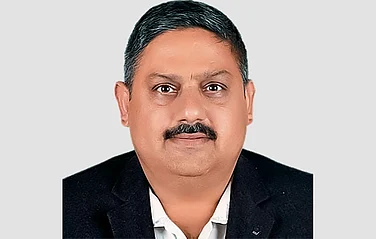What is your favourite investment instrument and why?
People often ask me what my favourite investment product is—equity, mutual funds (MFs), portfolio management service (PMS), or something else. No instrument is good or bad. It’s only as good as its alignment with the person using it.
However, if I had to choose one vehicle that truly creates wealth for the long-term, it would be a well-constructed, diversified MF portfolio. Because it allows you to own high-quality businesses and helps you participate in the growth of India and the world, bringing discipline through systematic investment plans (SIPs). Most importantly, it provides a transparent, low-cost, and tax-efficient way to build wealth. More often than not, the real question is not what to invest in, but when.
Could you explain the importance of goal-based financial planning?
Without goals, investing becomes aimless. Many talk about returns, beating the market, etc. But here’s what I’ve learned: the best investment plan is the one that helps you live the life you have always imagined.
Goal-based planning is about understanding what matters to you—retirement, children’s education, supporting your parents, buying your dream home, and so on. When you align your money with these goals, everything changes. You don’t chase fads and stop comparing yourself to others. Instead, you focus on the process, on the purpose.
How important is it for retail investors to consult a financial advisor?
You won’t perform a self-surgery or argue a high-stakes legal case without a lawyer. Then why would you try to navigate something as important as your financial life without a guide?
A good advisor doesn’t just recommend investments, they act as a thinking partner and bring clarity when you’re confused. A good advisor keeps you from making two most expensive mistakes: doing the wrong thing at the wrong time, or doing nothing at all. So yes, consulting the right advisor can be valuable.
With so many types of advisors in the market, how should one choose the right advisor?
People usually choose advisors based on returns or fancy jargons. Instead, you should start by focusing on the questions they ask. Do they ask about your goals, your values? Do they provide you financial clarity? Do they educate, or do they sell?
A good advisor is not Relationship Manager Number 4. They are not there to tell you what’s hot or new. Rather, they protect and help you and your family make great decisions—even when you’re not around. Also, your spouse should trust them too. That’s because your money is not just for you, it’s for your family too.
What are the top three tips you would like to share with investors?
First of all, don’t confuse movement with progress. Just because you are switching funds or timing markets, doesn’t mean you are moving forward. Second, focus on purpose before performance. Know what you are investing for. When you invest with intention, you build resilience. Finally, find an advisor you trust—not because they sound smart. Your best investment, apparently, is a relationship—with someone who helps you live with clarity, confidence, and calm. At the end of the day, wealth is not about how much money you make, it’s about how aligned that money is with your life. That is the real benchmark.
Disclaimer: The views are personal and not a part of the Outlook Money Editorial Feature.













